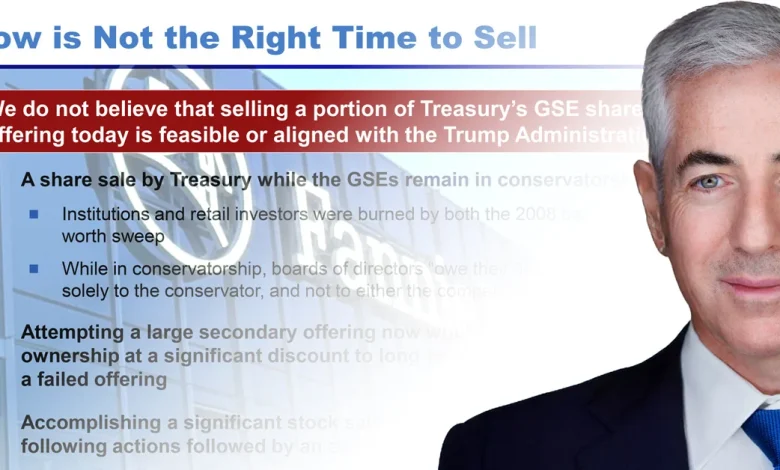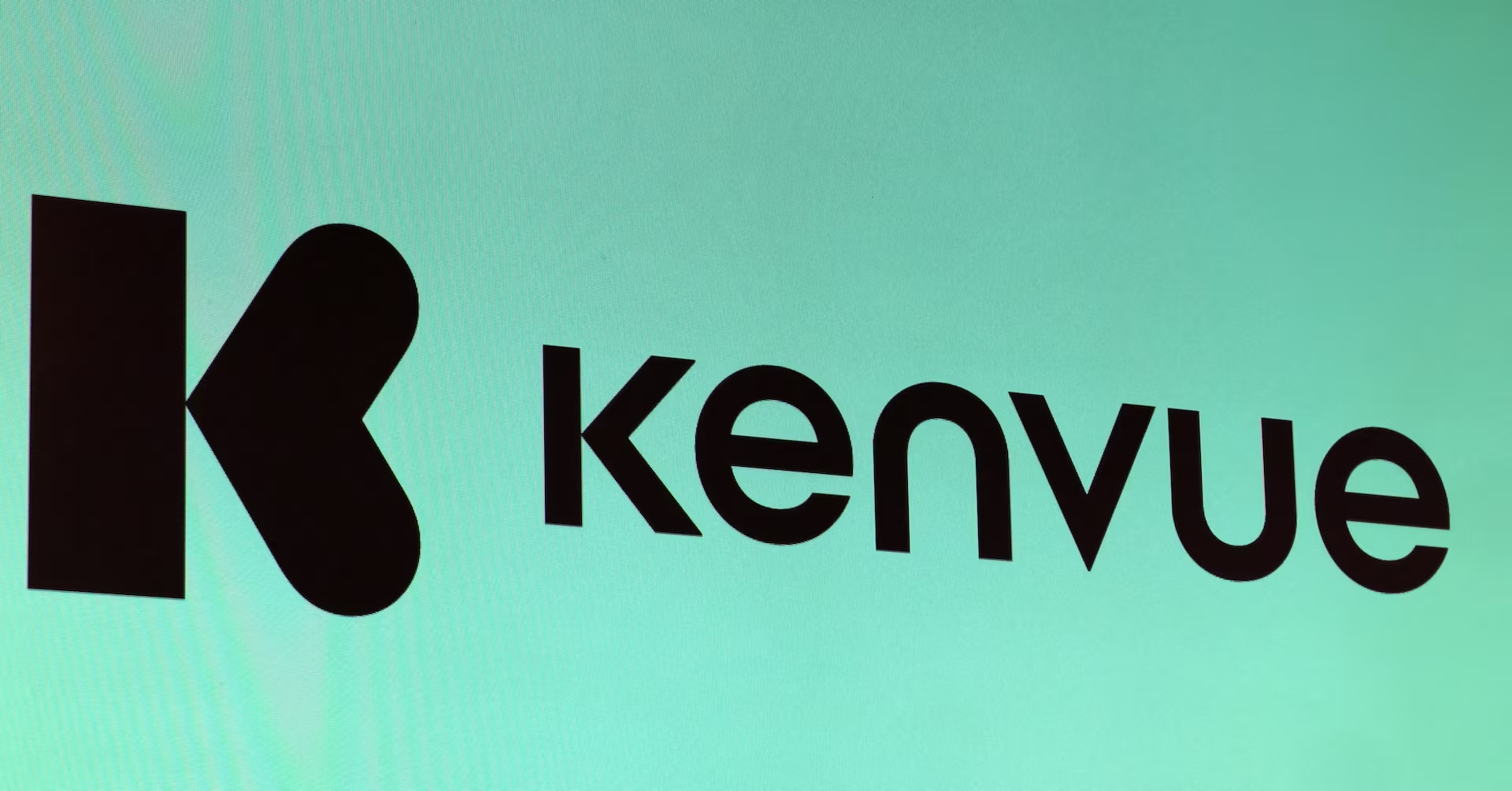Ackman urges Trump to delay Fannie and Freddie IPO

In a presentation livestreamed Tuesday, the founder and CEO of hedge fund Pershing Square Capital Management, Bill Ackman, pitched his proposal for facilitating Fannie Mae’s and Freddie Mac’s orderly exits from federal conservatorship.
That proposal urged the Trump administration to delay a widely reported initial public offering (IPO) that major U.S. banks like Goldman Sachs, JPMorgan Chase and Bank of America have vied for a guiding hand in orchestrating.
“We do not believe that a sale of a piece of Fannie and Freddie to the public is either feasible or really desirable at this moment in time,” Ackman said.
An effort to take the companies public now could “likely” lead to a “failed public offering” or an offering achieved “at a price well below the intrinsic value” of the companies, he warned.
Regulated by the Federal Housing Finance Agency (FHFA), Fannie Mae and Freddie Mac are government-sponsored enterprises (GSEs) that purchase residential mortgage loans, collectively backstopping about 60% of the U.S. mortgage market.
Fannie and Freddie landed in federal conservatorship due to the 2008 financial crisis, when the government bailed out the massive mortgage investors and other major banking institutions carrying billions of dollars of exposure to largely worthless mortgage loans.
A two-phased approach
Ackman’s Pershing Square is the largest common shareholder of Fannie and Freddie, with around 220 million shares in the two companies, according to comments Ackman made during a Pershing earnings call in May. Based on the total shares outstanding as of Sept. 30, that would represent about a 12% combined stake.
Ackman said the “biggest overhang” holding back GSE release is the market’s concern that “there is some probability” the government may unilaterally convert its senior preferred stock (SPS) to common stock, likely massively diluting common shareholders’ value.
He described his proposal as a “walk before you run approach” involving two phases. Broadly, the two-phased exit proposed by Ackman is designed to preserve common shareholder value and avoid destabilization of the broader mortgage market as exit from conservatorship proceeds.
The GSEs would remain under federal conservatorship as the government works through three steps in phase one: accounting for the repayment of the government’s SPS; exercising the U.S. Department of the Treasury’s 79.9% warrants in both companies; and relisting Fannie and Freddie on the New York Stock Exchange (NYSE).
These steps can be taken immediately, Ackman believes.
The GSEs have reimbursed the Treasury Department “well in excess of what was contractually required” in their original agreement, in his view, the accounting for which could be settled “via a simple letter agreement between Treasury and the FHFA.”
The Treasury can exercise its 79.9% warrants in both companies for fractions of a penny per common share, formalizing the government’s permanent 79.9% stake in each.
Citing recent conversations with the NYSE, Ackman said Fannie and Freddie already meet all of the exchange’s listing requirements and could relist in a matter of weeks before formally exiting conservatorship, pending FHFA approval.
Executing these steps with the GSEs still under conservatorship would preserve the operational status quo at Fannie and Freddie and stabilize the broader market as the changes occur, according to Ackman.
Taxpayers’ housing royalties
After completing these steps, Ackman envisions a three-year window for the Trump administration to address GSE capitalization, the nature and extent of government support, and regulatory, management and governance frameworks.
By first settling the government’s SPS and ensuring common shareholder value is preserved, Ackman believes, Fannie and Freddie can trade publicly at much higher prices in the future, nearly 80% of which accrues to taxpayers through the government’s stake.
Pershing Square estimates that the taxpayers’ stake in the GSEs will be worth in excess of $300 billion, after accounting for the government’s SPS, its exercising of the 79.9% warrants and the companies listing on the NYSE.
“This is an enterprise that can compound at a rate faster than the cost of the government borrowing,” Ackman said, describing guaranty fees by which the utility-like, “duopolistic” GSEs derive most of their income as “royalties on the U.S. housing finance system.”
With Fannie and Freddie respectively trading at roughly 3.7 and 2.5 times their earnings in 2025, Ackman projects those multiples could rise to 16 and 13 times their earnings as the companies become “must-own securities” for the trading public.
“One of the important ways to reduce our country’s leverage is by increasing the asset values of the assets that are owned by our government,” Ackman said. “This is a very simple, clear example of that.”




